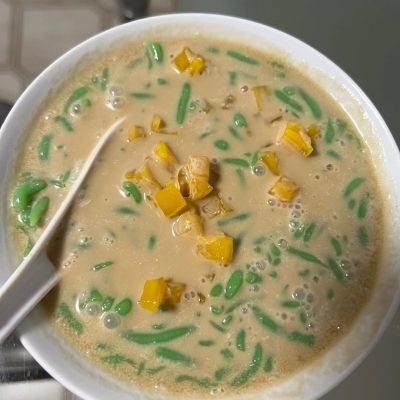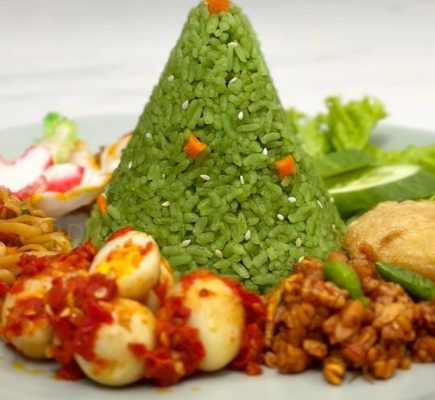
Are ready for some nasi goreng, gado-gado, and ikan bakar baronang?
The New York Indonesian Food Bazaar is in Elmhurst on Saturday, March 1, from 11 am to 5 pm.
This market is the very definition of “authentic ethnic” as Indonesian immigrants come from as far away as Boston and Virginia to sell and buy their homemade food, beverages, desserts, and crafts. Cultural performances are also part of the experience, which takes place in a large common area at St. James Episcopal Church.
Admission is free, but products are for sale. Delivery options are negotiable.
Felincia “Fefe” Anggono founded the Indonesian Food Bazaar in 2012, and it has steadily grown to about 40 consistent vendors with several hundred attendees each time. (Fefe is one of the vendors; she runs the Taste of Surabaya stall there.)
Editor’s note: The market takes place on the first Saturday of every month. However, there are exceptions. To confirm before heading over there, click here or contact Fefe via [email protected] or [email protected].
Located at 84-07 Broadway, St. James is a beautiful church that joined the National Register of Historic Places in 1999. It then obtained NYC landmark status in 2017. Established in 1704 and completed in 1736, the architecture is English Colonial with a barrel vaulted ceiling.
St. James has a parking lot, but it’s small so visitors shouldn’t plan on getting a spot there. The best public transportation options are the M and R trains to the Grand Av-Newtown Station and the Q60 bus to the Queens Boulevard-Broadway intersection.
The Cuisine
Indonesia is in a tropical climate zone in Asia. The majority muslim country contains about 6,000 islands and more than 600 ethnic groups and 264 million citizens. The cuisine features plenty of seafood and tropical fruit with Arabic, Chinese, Dutch, and Indian influences.
Peanut sauce is big. So is curry. Rice is a staple. Coconut is everywhere, and spice rules the day. Some examples follow.
Gudeg Jogja is a jackfruit stew.
Lontong is a rice cake wrapped in banana leaves with squid.
Ketan Serundeng is sticky rice with aromatic coconut flakes.
Basko is a meatball soup that might include noodles, fried fish cakes, spicy sambol, and crisp wonton skins.
Bubur Ayam is a slow-cooked vegetable porridge that usually features shredded chicken.
Empek-Empek Palembang consists of fried fish sticks with spicy tamarind sauce.
Gado-Gado is a salad with egg, peanut sauce, tempeh, and tofu.
Kopi Luwak, which is also known as “Civet Coffee,” comes from coffee cherries that are eaten and then defecated by civets, a cat-like, nocturnal mammal that is common in Indonesia. The civets have a stomach enzyme that breaks down the beans (or pits) in a way that creates a rich aroma and flavor. The partially digested beans are taken from the mammal’s feces, cleaned, and roasted in a process that dates to the 19th century when Dutch colonists established coffee plantations in Indonesia.
Martabak Manis is a thick, sweet, buttery pancake with some kind of filling (usually chocolatey or nutty).
Nasi Goreng is a turmeric yellow fried rice with coconut milk.
Oseng Tempeh often mixes stir-fried tempeh cake with garlic, ginger, makrut lime leaves, lemongrass, and a glaze of soy sauce.
Tahu Bacem is a soybean cake that mixes sweet with spicy. It’s served on banana leaves.

Images: New York Indonesian Food Bazaar
The Queens Tourism Council promotes the world’s most diverse county through organized efforts by local businesses, cultural institutions and government. We foster economic opportunities, travel and tourism by letting visitors and residents know that – with great places to visit, eat, play and stay – It’s in Queens! Support for It’s In Queens comes from the New York City and New York State agencies and elected officials and the NYC & Co Foundation.
